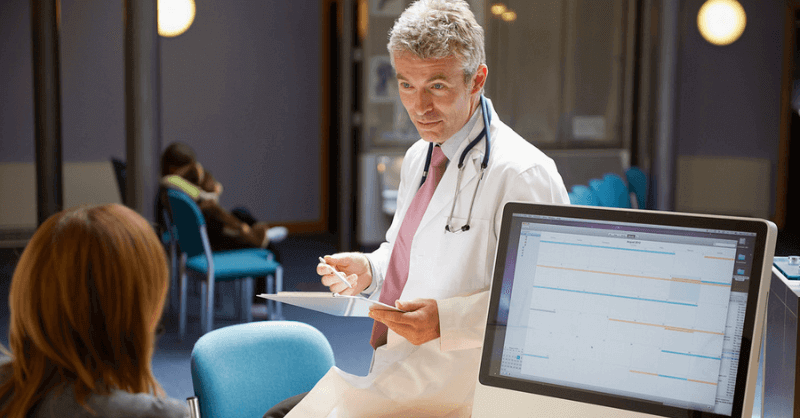A list of the most key aspects for a medical receptionist can be found below. The best skills were ranked based on the percentage of medical receptionist resumes that include them. Medical records, for example, were listed as a skill on 11.2 percent of medical receptionist resumes. Let’s look at the skills that a medical receptionist requires to be effective in the workplace.
1. Organising
Since most of your duties would enable you to remain organised, one of the most valuable skills of a medical receptionist is organisation. It is important to maintain orderliness when doing several activities at once, such as checking in patients, taking phone calls, and keeping track of schedules and medical records. You are responsible for having your desk organised as a receptionist so that you can easily assist patients and team members.
2. Prioritising Task
There will be a lot of tasks to handle at a time for a medical receptionist. Among all of the tasks, he/she needs to find out which is more important than others. After sorting out now it’s time to hand over the required task to the relevant department or staff where the task belongs. Otherwise, he or she can leave essential tasks unfinished, causing considerable disruption to the office’s operations.
As a result, the receptionist must be able to prioritise tasks and complete them according to their priority.
3. Customer Assistance
One of the responsibilities of the Medical Receptionist as a front desk person is to attend to patients and clients. To be able to provide professional services to customers, you must have a strong understanding of customer service.
To work at a medical facility’s front desk, medical receptionists must have outstanding customer service skills. You are in charge of meeting them and having a pleasant first impression so that they have a positive experience. Making eye contact and smiling warmly to welcome patients as they enter the office, as well as discussing any concerns they may have, are examples of this.
4. Communication Abilities
It goes without saying that someone in a people-oriented job needs outstanding communication skills since it allows for a free flow of knowledge and fosters understanding.
Medical receptionists with strong verbal and written communication skills are in high demand. To welcome patients, take phone calls, and converse with colleagues, medical receptionists use verbal communication. They send letters, schedule patients, and dictate memos using written documents.
5. Multi-Tasking
In the medical field, there can be a lot of items on a person’s desk at any given time, all of which demand attention. Instead of being frustrated, the receptionist would need to devise a method of doing several duties at the same time to complete further assignments and keep the office running smoothly.
Not being able to multitask efficiently can have some serious repercussions in a healthcare facility. In healthcare and medical facility, it is common to have multiple time-sensitive issues that need to be dealt with simultaneously. That’s why it is one of the most important medical receptionist skills.
6. Problem Solving
One of the most important duties of a medical receptionist is to respond to questions and concerns from patients and visitors about the clinic’s services.
The receptionist must be able to offer solutions to perform this job effectively. Often patients who require assistance in a medical facility are overwhelmed, or they are worried. As a result, they depend on the receptionist to guide them and provide a solution. To successfully answer patient questions or handle complaints and settle their concerns, a medical receptionist must be able to solve problems effectively.
7. Technical Skills
The receptionist must be able to use electronic devices on the job effortlessly, such as the phone and computer.
Medical receptionists must be flexible in their approach to emerging technologies. Employers are looking for medical receptionists who can deal with scheduling software and patient charting software. It’s critical to stay current with these software programs, particularly because a computer is one of the most important resources you’ll use as a medical receptionist.
8. Time Management Skills
It’s important to be as efficient as possible when dealing with patients and handling their paperwork so that they don’t have to wait too long. The receptionist must have excellent time management skills to attend to patients and customers as soon as possible.
9. Interpersonal Skills
The ability to communicate with people on a one-on-one basis is essential for the completion of tasks. The receptionist has to be able to easily connect to clients with their interpersonal skills. Without good interpersonal skills, a receptionist can not do their job well, especially a medical receptionist.
10. Anger Management Skills
Dealing with a variety of people regularly, some of whom may be challenging necessitate the receptionist’s ability to remain calm in stressful situations.
Since it affects client care and operations, customer service may either make or break an establishment’s growth.
A medical receptionist with the skills mentioned above is a dream come true for every employer because they are sure to add value to the company, which is why they should be included in your resume.


![]() 13 minutes
13 minutes


![]() 13 minutes
13 minutes